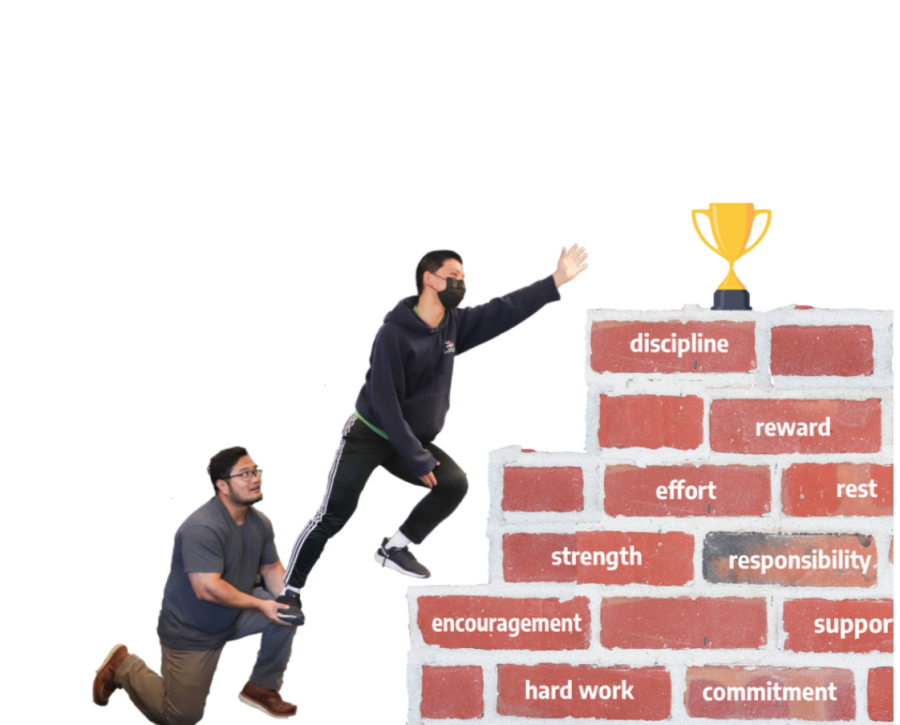The importance of coaches in player development
May 26, 2022
Coaches play a huge role in an athlete’s development and career. They help athletes develop a tough mindset from a young age, allowing them to become the best possible versions of themselves, both mentally and physically. Maintaining a balance between pushing athletes to their limits and being supportive is difficult. For both individual and team sports, student-athletes greatly depend on their coaches for success and growth.
“A good coach should have good people skills in addition to the knowledge and technical skills,” FUHSD gymnastics coach Gary DeGuzman said. “They need to be patient, understanding and able to effectively communicate and explain what it is that they are trying to teach their athletes.”
For some coaches, the motivation to coach stems from their passion for teaching. They hope to be inspirational role models and to give players positive experiences with the sport.
As a teenager, history teacher and badminton coach Nhat Nguyen received an offer to train at a badminton club in the Bay Area, with a catch being that he would have to drop out of school due to conflict with the intense training schedule. He took the offer, but his later conversations with his academic teachers caused him to question his decision.
“My interaction with my teacher at Fremont High School at that point made me realize that, in the long run, adults like teachers and coaches play important roles in students’ lives,” Nguyen said. “Your interaction with those adults can lead you on the right path or it can destroy your passion and dream. This realization made me want to become both a teacher and a coach to prevent that from happening to other student-athletes.”
Athletes rely on their coaches for improvement, which is often made by being pushed out of one’s comfort zone. Coaches do this by setting attainable goals that motivate athletes, rather than making overarching goals, and this balance is unique to each athlete and sport.
“This is one of those fine lines that gets a little easier to recognize with time,” DeGuzman said. “It helps to be able to get to know each individual and recognize where they are at in their skill development and their personalities. I have athletes of so many different skill and fitness levels, so what works for one does not necessarily work for another.”
When athletes are not performing to their full potential, coaches should also react to the situation depending on the athlete. While some athletes may prefer encouragement and reassurance that a solution is within reach, others need coaches to be upfront to stimulate their performance.
“If the player responds better to tough love, then the coach should try to motivate them by being brutally honest,” junior and varsity basketball player Navya Anand said. “If the player tends to get demoralized when coaches yell at them, then coaches should try to be more positive and uplifting so the players don’t beat themselves up more. Personally, I want my coaches to tell me exactly what I need to fix, even if it’s hard to hear, because it motivates me to work harder and play better.”
In order to find this balance between rigor and support, coaches should also normalize losing or having off days and mention the positive aspects of their athlete’s performance rather than the loss itself. Oftentimes, a decline in performance is caused by athletes trying to learn a new skill, but the important part is to have coaches supporting them along the way.
“Most athletes go through periods called plateau,” Nguyen said. “Any kind of training, mental or physical, can cause fatigue and eventually plateau. Fixing a bad habit and relearning a correct form for the first time will cause your performance to drop for sure.”
It is important for coaches to remind athletes to remember that their sport is something that is enjoyable and a way to relieve stress. This can help athletes relax and remember how fun it is to play their sport, boosting their overall performance.
“Everyone can have an off day, even the best in the world, such as Simone Biles in the last Olympics where she chose to abstain from the competition due to mental health issues,” DeGuzman said. “All I really expect from my athletes is that they do their best and have fun along the way.”



































































